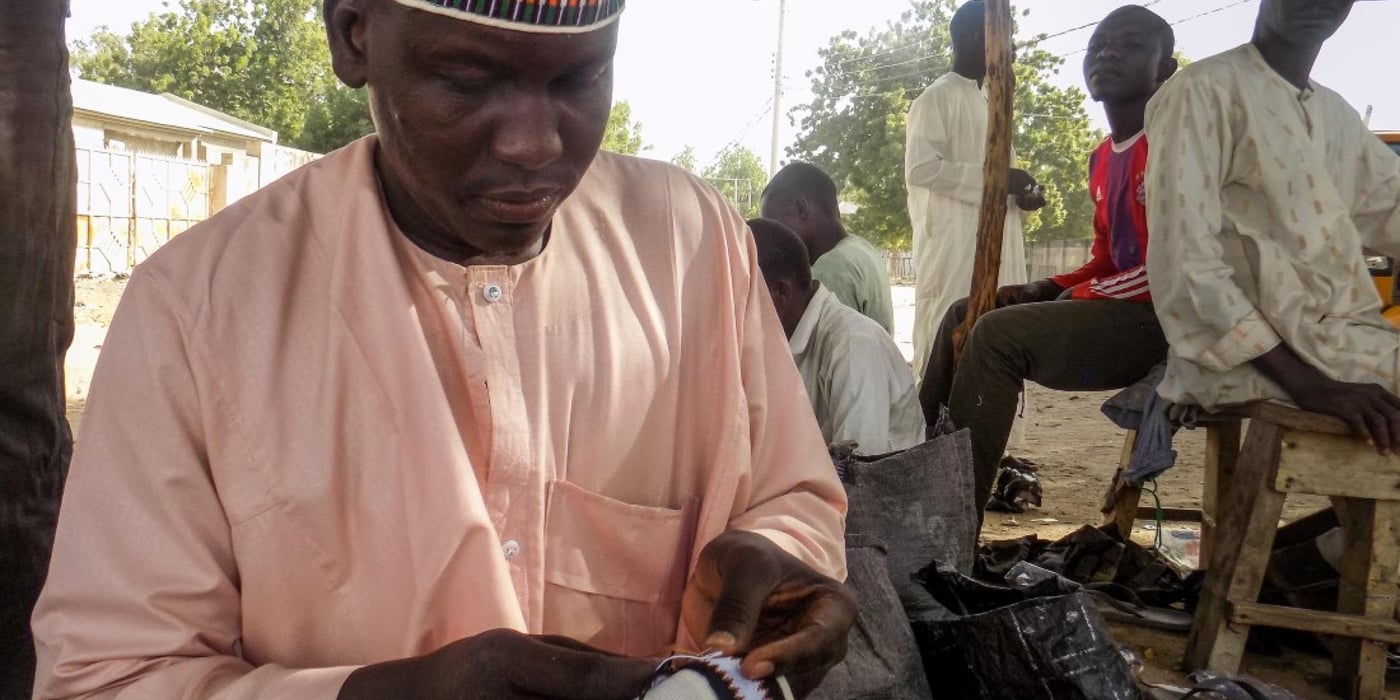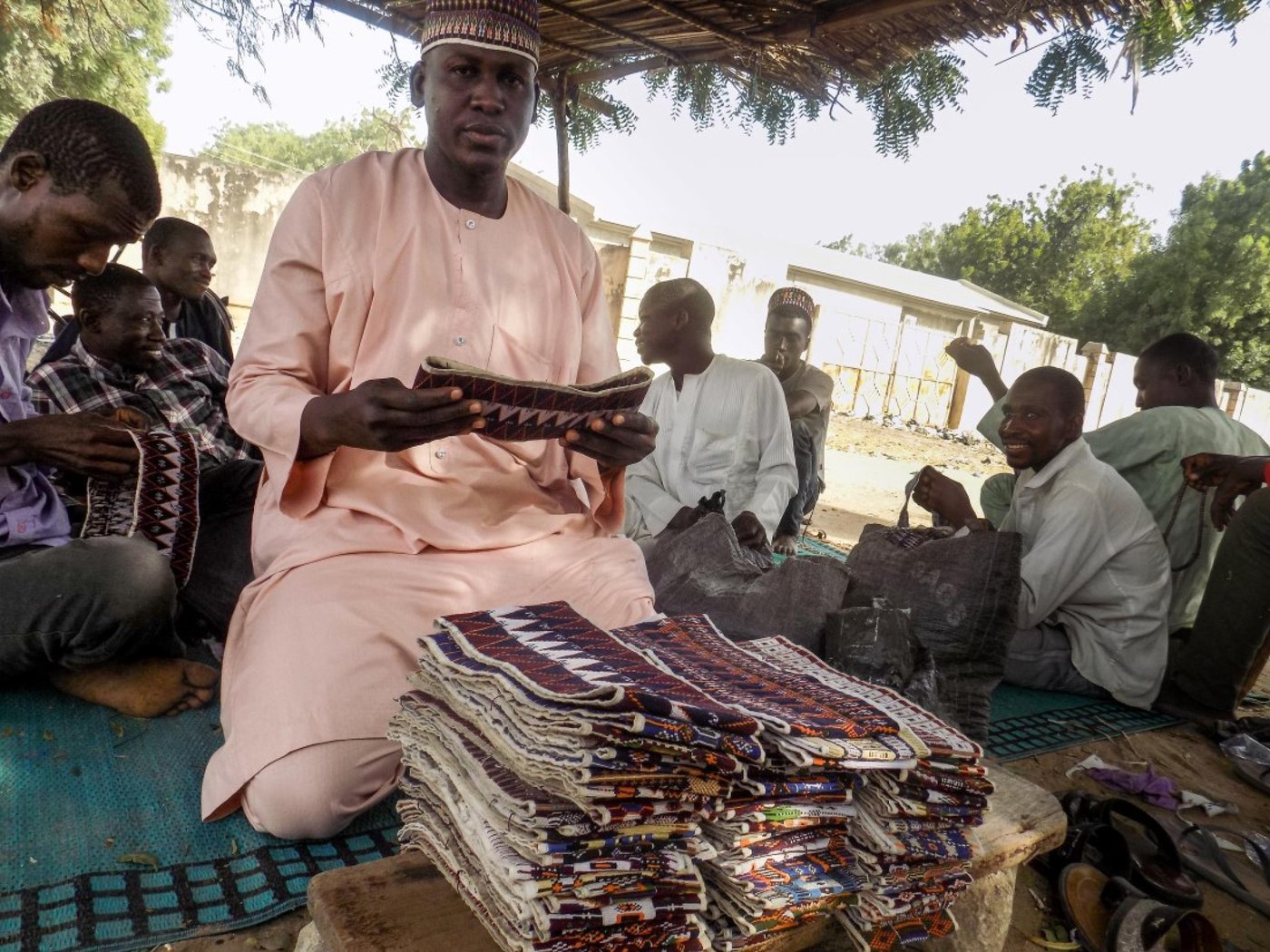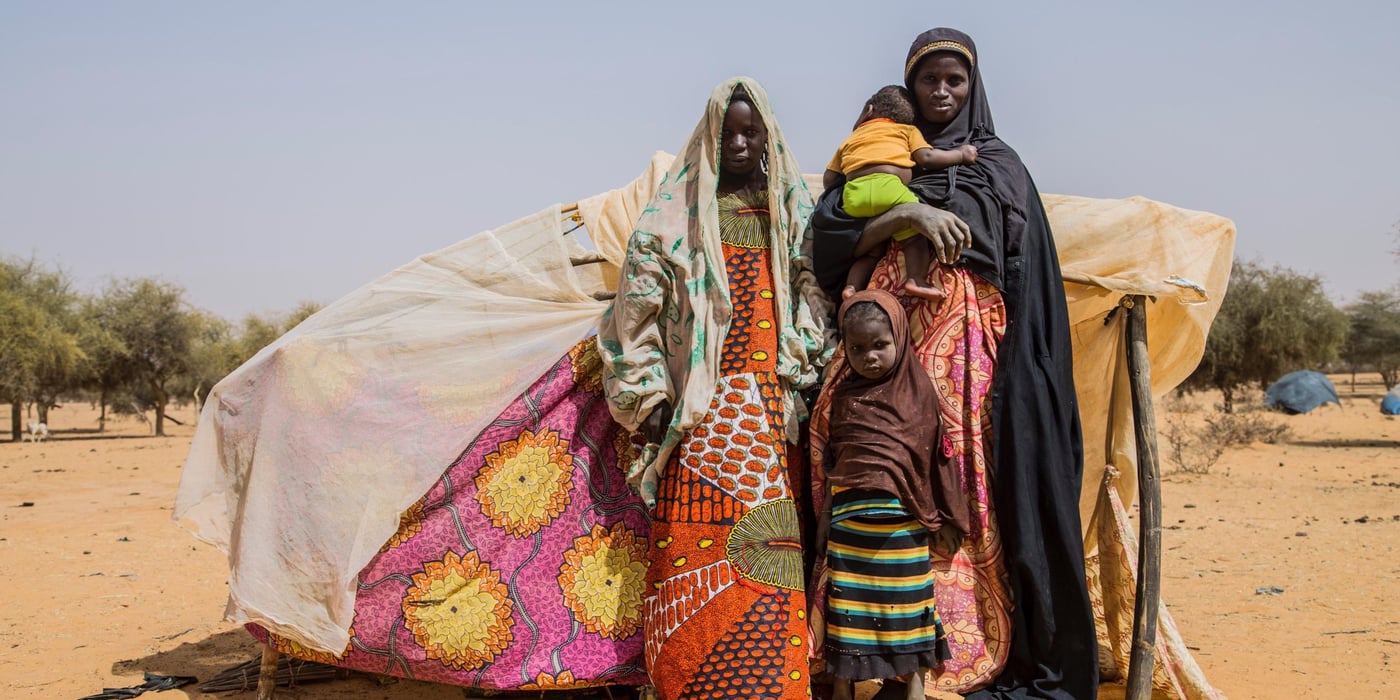
Sitting on the ground in a circle surrounded by other young men, 35-year-old Mbusube Alhaji Modu carefully weaves locally sourced strands to produce decorative caps of varied sizes and vibrant colours.
“I can create any design of cap I see,” he says proudly. Modu is taking his future into his own hands, turning a harsh reality into a positive opportunity.
Three years ago, Modu and his family fled from his home in Bama, southeast of Maiduguri, the largest city in Borno state, following intense fighting between members of an armed opposition group and the Nigerian army. Many of their neighbours were killed or injured during the clash.
Modu and his family are part of the nearly two million people affected by displacement in north-east Nigeria. Fleeing from the conflict, people have often walked as far as 60 km to find safety in neighbouring communities where they struggle to find shelter, enough food to eat and proper healthcare.
We respond by working to improve peoples’ access the shelter, food, water, and livelihoods, with a focus on promoting and protecting their dignity and rights.
“I can create any design of cap I see,” he says proudly.
New opportunities
With funding from the European Union, we held a micro-enterprise training for nearly 3,000 internally displaced women and men in Kusheri and Modusullumri, two communities in Maiduguri.
Working with a local community based organisation, we trained the participants on how to start and manage small businesses, how to save part of their incomes, and how to attract customers. We worked with the participants to identify and prioritise marketable business ventures and to develop concrete business plans.
“During the training, they taught us how to package our business to attract customers and how to save,” says Modu, who along with other participants received a start-up grant of 43,500 naira (121 US dollars) to start or boost their small businesses.
“The training focused on helping them understand and engage in income generating activities,” says Judith Oyakhire, our food security officer in Maiduguri.
Saving for the future
The training aimed to provide economic recovery for people affected by displacement in north-east Nigeria.
“When I came to Maiduguri three years ago, I could only make and sell two caps per week. But after the business training and the grant issued to me, I now make and sell over 50 caps weekly,” Modu says.

From his cap business, Modu makes a profit of between 8,000 and 10,000 naira ( the equivalent of between 22 and 28 US dollars) which he uses to pay for the rent of his two room apartment, care for his wife, four children, an aging mother and two of his sisters. He also keeps a portion of his weekly income as savings in the bank which he plans to use for expanding his business in the future.
“No other organisation has this kind of initiative. I thank NRC for not just giving me food and other supplies but for helping me to become an entrepreneur,” he says.




